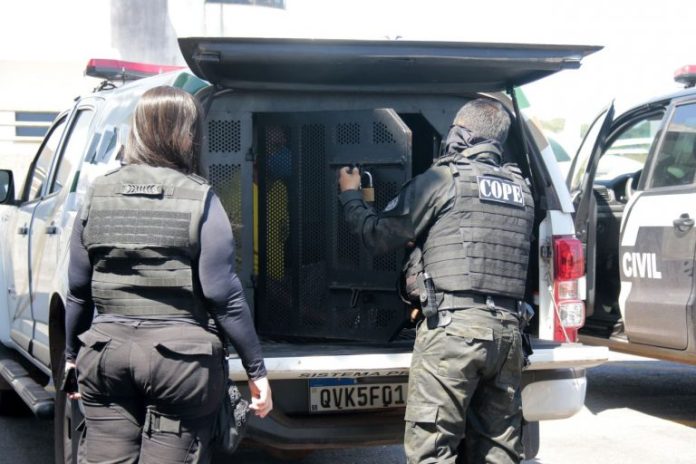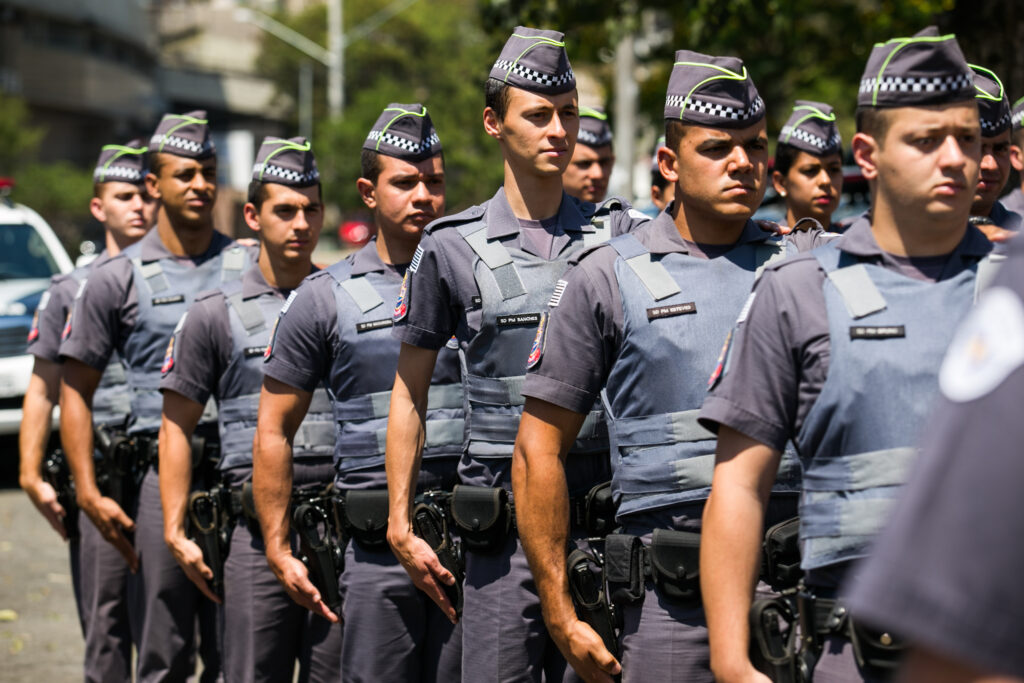
In the early hours of May 14, a civilian police investigator entered a police station in the state of Ceará, in northeastern Brazil, and murdered four of his colleagues. The next day, a military policeman from the state of São Paulo broke into a police station in that city and killed two colleagues.
Both officers turned themselves in to authorities after the murders, and both cited mental health issues such as anxiety, depression, stress, and exhaustion as justification for their crimes.
The two episodes of violence between police officers have sparked a broader debate in Brazil about the mental health of police officers.
Between January 2020 and April 2021, 1,647 São Paulo state military police officers were diagnosed with mental health disorders, according to data from Fiquem Sabendo, a nonprofit transparency watchdog. The state has almost 80,000 military police.
Low salaries and the accumulation of responsibilities have led many police officers to denounce that working conditions and other stressors contribute to the appearance of mental illness, especially anxiety, depression, stress and burnout.
According to Jacqueline Valadares, president of the São Paulo police chiefs’ union, the officers are overworked and do not have a minimum rest period, in addition to suffering from low salaries.
“Police officers already work exhaustive scales and, many times, to supplement their income, they have to do outside jobs, and they don’t manage to have time to disconnect and rest properly,” the union president told Brazil Reports.
Valadares also denounced administrative problems that make it difficult for agents to request medical help. «When a policeman asks for medical leave, he ends up losing some benefits that make a difference in the family’s income. This discourages the agent from asking for help. It is necessary for the State to worry more about the mental health of the police officers, “said Valadares.
In addition, the union president says that there are still many stigmas around the profession, such as the impression that police officers must always be strong, as they act to protect society. “This stereotype also makes it difficult to ask for help. The policeman is also a human being and is not immune to problems, “he said.

Pressure for police officers
According to Valadares, the pressure that police officers suffer on a daily basis carries an enormous emotional burden and facilitates the appearance of mental illnesses. To reverse this scenario, he advocates preventive and permanent work aimed at the mental health of professionals.
«There is no continuous psychological support from the institutions. There are only specific actions. But we don’t have an effective support system for these professionals. Instead, we have an administration that discourages requests for help and a system that is not prepared to work for mental health, “he said.
Cassio Thyone Rosa, director of the Brazilian Forum for Public Security, an NGO that collects data on crime in the country, agrees with Valadares’ assessment.
«It is necessary to carry out a regular psychological follow-up to be able to detect when a professional really needs help. The policeman, in addition to the stress to which we are all subjected by particular conditions, will also face stress related to the exercise of his function, “said Rosa.
number of suicides
Valadares also revealed that the police union is concerned about the increase in suicides among officers. In 2021, across the country, 101 active duty police officers committed suicide. In 2020, there were 65 suicides, which represented a 55% increase from one year to the next, according to data from the Brazilian Forum on Public Safety.
«Today, in São Paulo, we lose more police officers to suicide than to actual combat. Our police officers are getting sick and they don’t always get the help they need. A more active movement on the part of the authorities is urgent, “said Valadares.
The solution to the increase in officer suicides involves prevention, information, and psychological care for police officers, according to Thyone Rosa, and this begins when institutions begin to worry about the mental health of their employees.

new legislation
In January, President Luiz Inácio Lula da Silva signed a new law approved by Congress that aims to offer mental health and suicide prevention support to police officers.
The law includes some actions such as medical and psychological check-ups and special care for professionals with depression or anxiety, stress and other psychological conditions, those who abuse alcohol and other drugs and those who have attempted suicide.
The author of the bill is Senator and Police Chief Alessandro Vieira. According to Vieira, the idea is to create a system that protects police officers so that they can provide a better service to society and return safely to their families.
“When you follow the suicide statistics in Brazil, members of the police forces have a much higher average, a much higher number of suicides, suicide attempts and hospitalizations for mental problems. It is the consequence of the routine, which is very hard and of an activity that normally does not take care of the man», he said.
Article written by Tabata Viapiana in Brazil Reports.
